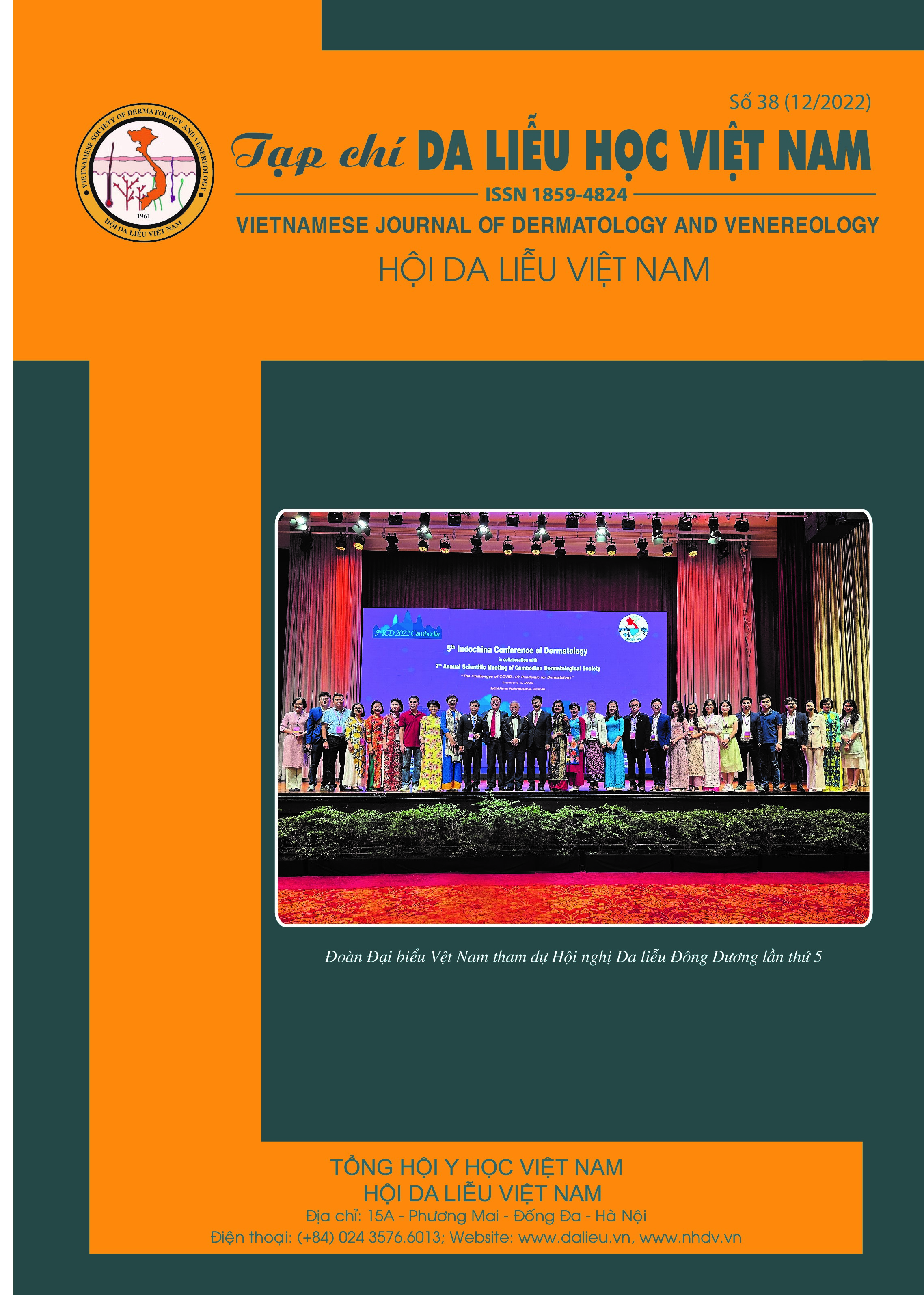QUALITY OF LIFE AND RELATED FACTORS IN PATIENTS WITH PEMPHIGUS VULGARIS
DOI:
https://doi.org/10.56320/tcdlhvn.38.40Keywords:
Pemphigus vulgaris, Quality of lifeAbstract
Background: Pemphigus is an autoimmune bullous disease caused by autoantibodies directed against desmogleins, and it is clinically characterized by bullae and painful erosions of the skin and mucous membranes. Pemphigus has a strong effect on patients' quality of life.
Objectives: To evaluate quality of life and related factors in patients with Pemphigus vulgaris that were treated in the Out-patient Department at the National Hospital of Dermatology.
Methods: A cross-sectional descriptive study on 70 out-patients with Pemphigus vulgaris at the National Hospital of Dermatology and Venereology from October 2020 to December 2020. The patient's quality of life was assessed by the DLQI questionnaire, the patient's mental status was assessed by the GHQ-12 scale, and the patient's severity was assessed by the PDAI index. The program SPSS 20.0 was used to analyze the data.
Results: The average DLQI score of 70 patients in our study was 9.4 ± 7.2. 47,1 percent of the patients showed a positive result in the GHQ-12, reflecting probable minor psychiatric nonpsychotic conditions such as anxiety or depression. The DLQI score correlated with functional symptoms, mucosal lesions, disease severity, and corticosteroid dose. DLQI score positively correlated to the GHQ-12 score.
Conclusion: Pemphigus vulgaris significantly impairs the patient’s quality of life. The quality of life of Pemphigus vulgaris patients significantly correlates with clinical manifestation and severity. Therefore, the quality of life of patents with pemphigus vulgaris should be assessed during the examination, treatment and management of the disease.





